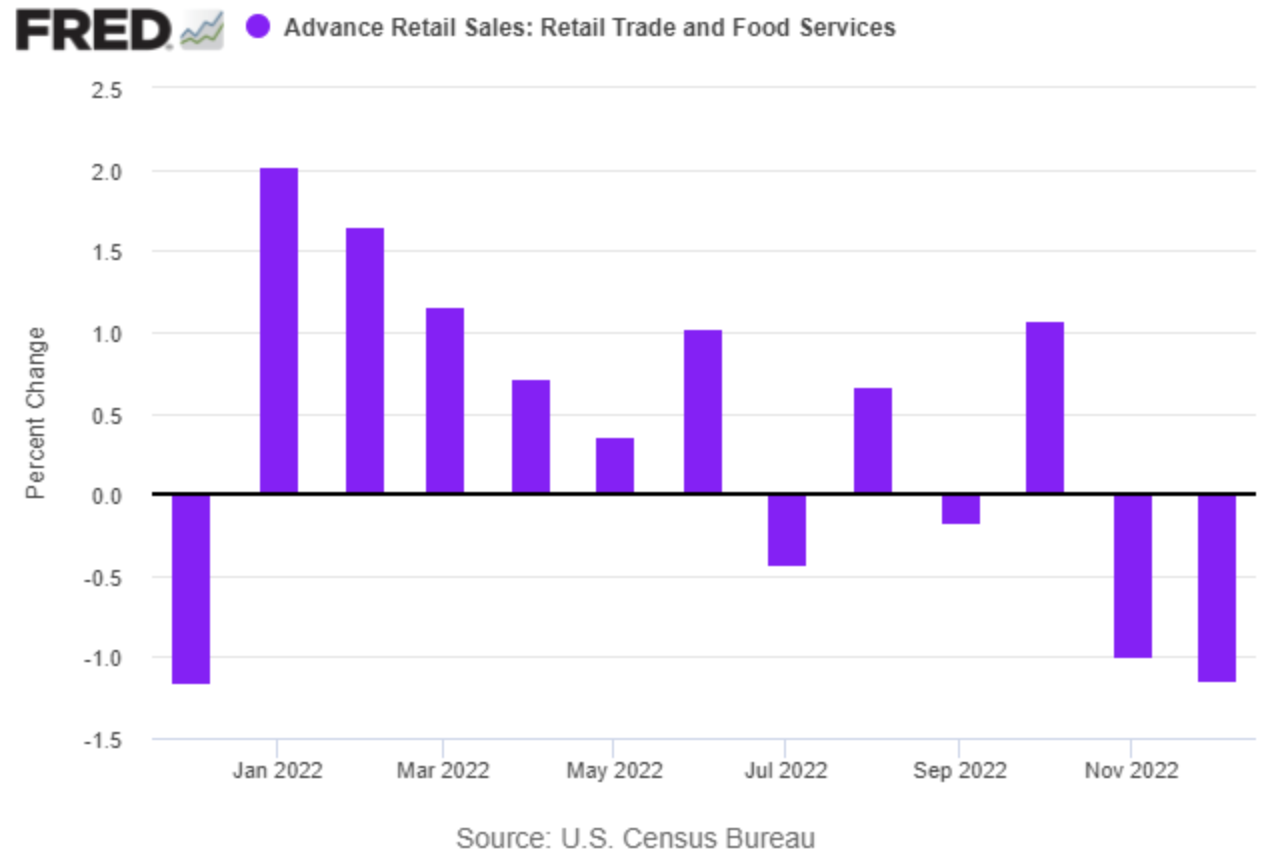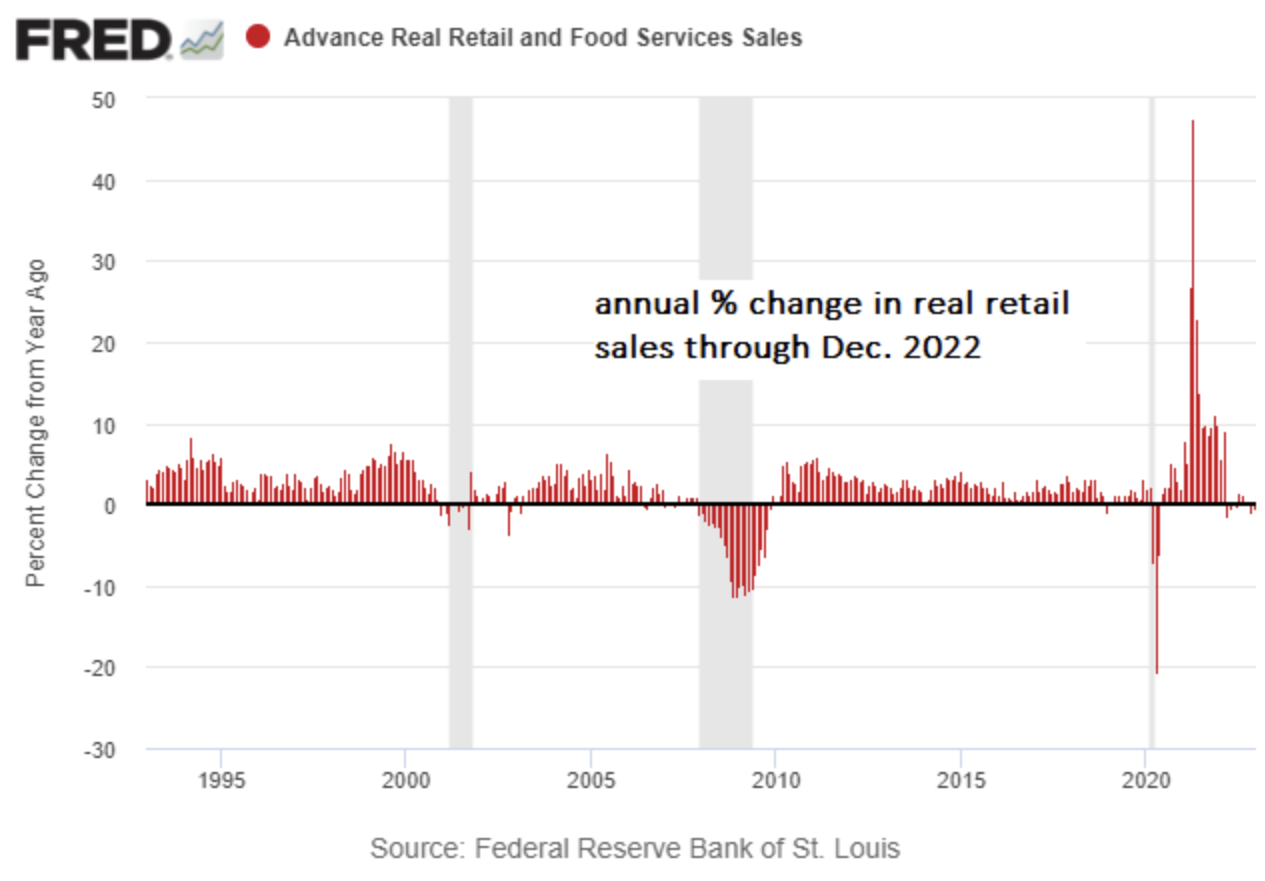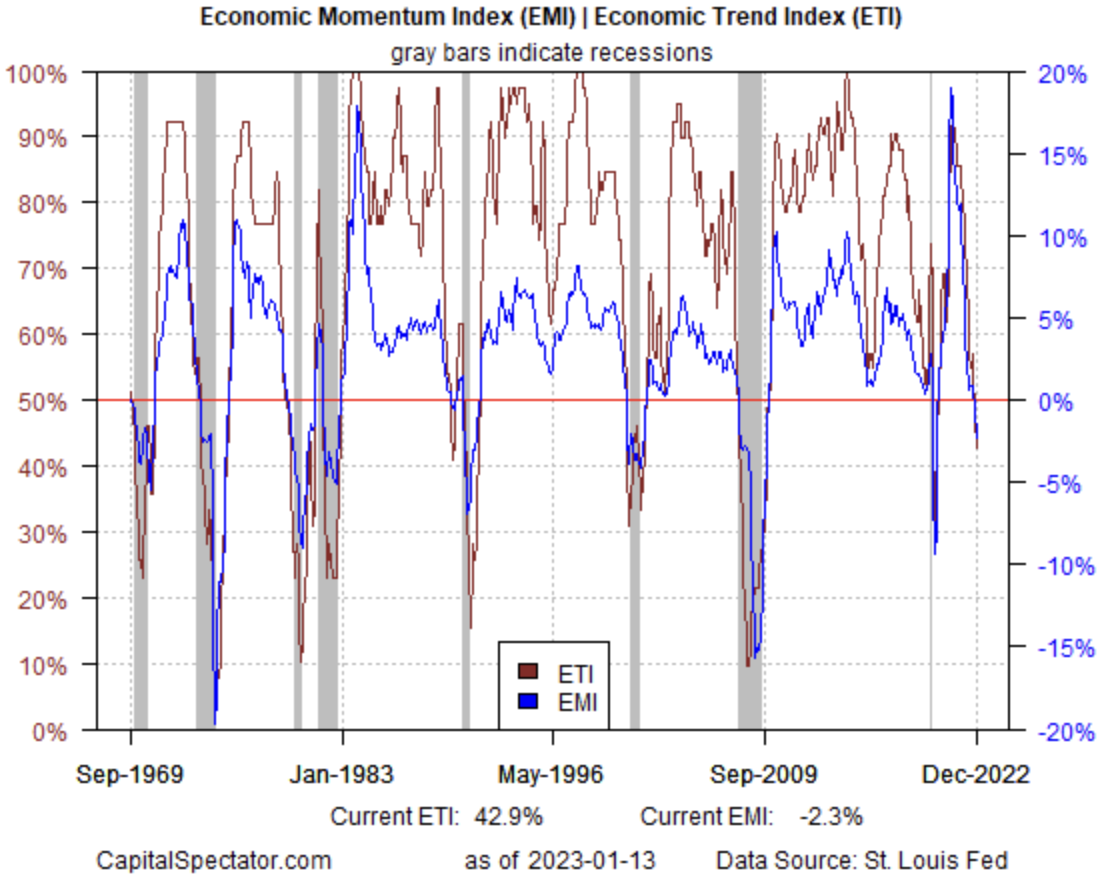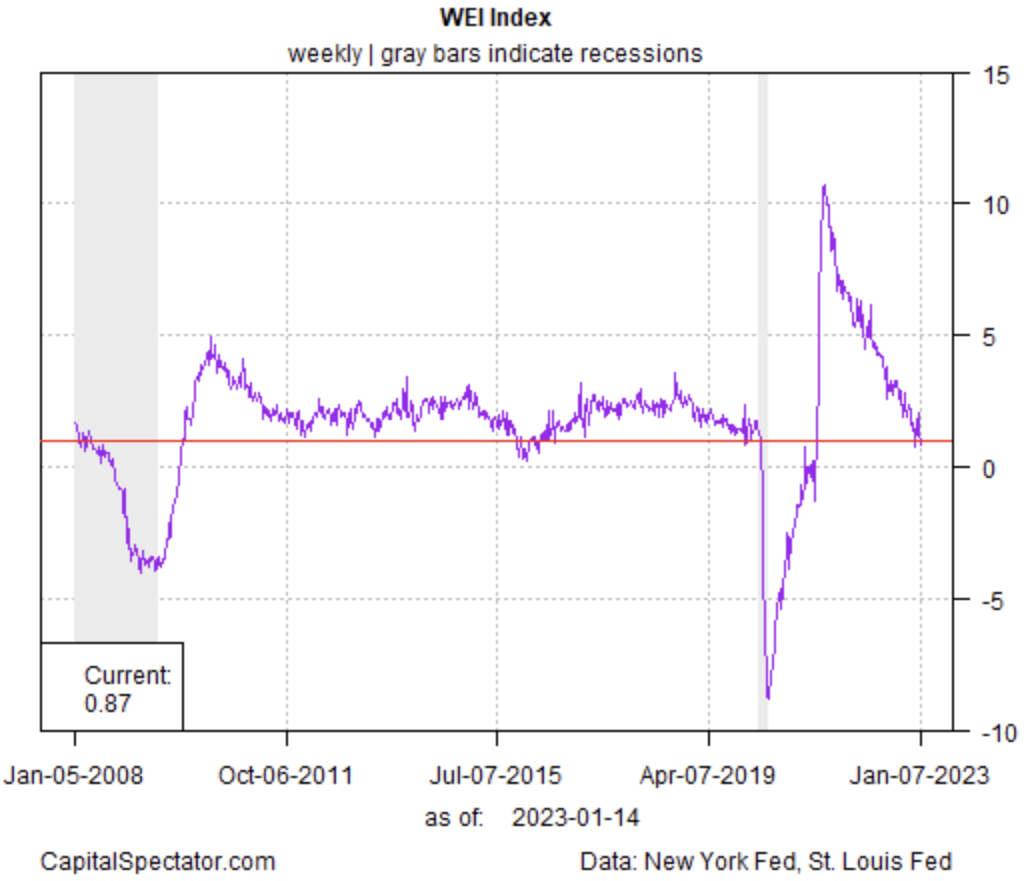Economists were expecting a decline, but the 1.1% slide in retail spending in December was deeper than expected. Even worse, the monthly slide marks the second straight decline. It could be noise, but in the current climate it’s reasonable to read yesterday’s news on the consumer sector as a new warning that business-cycle risk remains elevated.
The outlook for retail sales looked substantially brighter just a few months ago, when spending surged 1.1% in October, the best monthly advance since June.
“I think the hope was that this was going to lead to a little bit more momentum heading into the holiday season,” says Kayla Bruun, economic analyst at Morning Consult. “But really, it turned out to be more of just an early bump that actually took away from some of the spending that otherwise might have happened in November and December.”

Another analyst warns that “consumer is getting less healthy.” Barclays Consumer Discretionary Analyst Adrienne Yih says “this does not bode well for 2023.”
One pushback to the gloomy view is that the year-over-year change in retail sales is still high by historical standards. Spending rose 6.0% last month vs. the year-earlier level. But after adjusting for inflation the annual pace is slightly negative, posting a loss for a second month. Real spending in annual terms tends to be a more reliable measure of business-cycle risk and so a back-to-back dip in the year-over-year trend appears to be new a warning flag for the economy.

Keep in mind that the labor market is still posting solid if slowing gains, which probably represent the main bulwark against recession. Sharply weaker data on this front in upcoming releases would likely to be the smoking gun that convinces the optimists that the economy can avoid recession.
By my estimates, a broad reading of US economic activity shows a mild contraction in progress, based on the Economic Trend Index and Economic Momentum Index, a pair of proprietary indicators featured in the weekly updates of The US Business Cycle Risk Report.

Other business cycle indicators are also signaling economic activity that, at best, is at or near stagnation if not contracting. One example: the New York Fed’s Weekly Economic Index, which has dipped below a level that I guestimate marks recession.

The question is whether the labor market and consumer spending will continue to offset the general weakness that’s weighing on the economy? In the wake of the latest numbers for retail sales, it appears that the labor market is the last line of defense.
